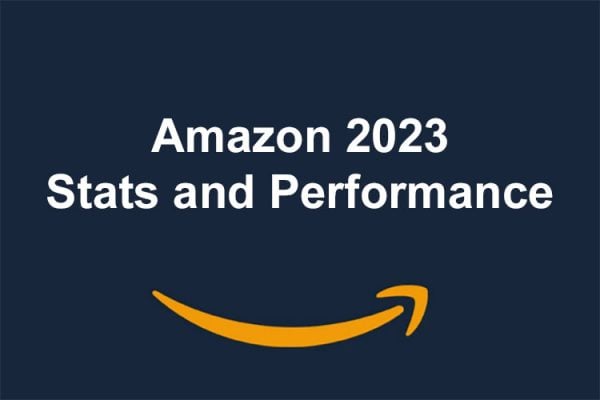Earlier this month, Amazon, Google and Starbucks were questioned by British Members of Parliament at a Select Committee regarding their UK tax affairs. After attending the Public Accounts Committee, all three companies have given additional written evidence. In Amazon’s case this includes a basic breakdown of their retail sales in the UK.
 Amazon has revealed its UK retail sales in the three years 2009 to 2011. Total sales in each of those years were £1.86bn (2009), £2.36bn (2010) and £2.91bn (2011). Respectively in those years, the VAT paid has been £172m, £262m and £416m according to their submission to Parliament.
Amazon has revealed its UK retail sales in the three years 2009 to 2011. Total sales in each of those years were £1.86bn (2009), £2.36bn (2010) and £2.91bn (2011). Respectively in those years, the VAT paid has been £172m, £262m and £416m according to their submission to Parliament.
Why is this notable? It has taken parliamentary pressure to make Amazon reveal these UK sales figures. Companies like Amazon (and eBay, it must be noted) have previously declined to break out such metrics considering them commercially sensitive and likely to influence Wall St and stock prices. As such, this is a real first for those who want to know the true scale of of Amazon in the UK.
Amazon (perhaps understandably) has not made its submission particularly easy to understand. Indeed, it is amusing to note that Amazon have made the information available to Parliament “on a confidential basis”. (Chortles – Ed.)
What do we learn? Not as much as we might hope. It is useful to know these numbers. When you consider that so many ‘High Street’ retailers, notably top brass from the John Lewis Partnership, have been highly critical of Amazon for killing bricks with clicks, it may be worth putting Amazon’s sales into perspective. John Lewis turned over £8.73bn in 2011, the Dixons group (which includes Currys) £8.15bn and Marks & Spencers made a total of £9.7bn sales of in 2011.
Firstly, Amazon in the UK isn’t as gargantuan as we perhaps expected. £3bn turnover in 2011 is, needless, to say enormous, but we imagined it to be bigger. Equally, we don’t know exactly what these numbers comprise. The submission says the figures include “net sales generated from the amazon.co.uk website over the past three years”. We imagine that includes Marketplace and third party sales but cannot be certain. Does it include sales to UK customers via the .com or .de site? We assume not.
Secondly, the key data that’s missing regards profit. And without those we cannot be sure how much Corporation Tax Amazon is avoiding. In future, members of the Public Accounts Commmittee would do well to be more forensic, and less showbiz, in the questions they ask. When they are we may get to the bottom of the puzzle.
As it is, a little shaft of light reveals some interesting information. But we’d like to know more. At the very least, we think it’s time for eBay to reveal similar (if not more illuminating) data. The issue of tax avoidance will not go away.











15 Responses
Intresting post, however I am not sure it does include Marketplace sales or Marketplace income as this is a seperate business?
I once visited Amazon HQ in the UK to possibly sell a range of our products to them direct instead of on the Marketplace, it was intresting to find out that they can not see sales figuires of Marketplace sellers, they can only see the impressions on products.
i guess sales made on Amazon UK from overseas and especially EU countries are not included
By themselves these figures are interesting but not particularly informative. However what would be interesting would be if around the World in all the countries that Amazon operates they had to produce a full set of accounts and of course they have to produce a full set Worldwide for Wall Street. Then to compare the totals of the National Figures and compare them with the Wall Street figures.
The Wall Street figures are designed to be as large as possible to interest the Investors. The National Figures to be as small as possible without being too silly. So if there was a big difference between the two sets of figures it would give an indication of just how honest or otherwise Amazon was.
Parliament set the laws of the land, companies calculate tax due based on the laws created in parliament by MP’s.
How can it work any other way?
Do we expect them to voluntarily pay more tax than they have to just to please the limousine liberals that want to suck joe public dry at every opportunity?
Businesses that pay more tax than is due are not ‘honest’ they are stupid.
suppose you can have a rough stab at margins knowing turnover and vat paid for the year
tax is not a new concept? surely if tax avoidance is possible the fault lies with those that allow the loop holes to exist ,so their interests are also served
you dont think that MPs in the past limited their self to fiddiling expenses do you?